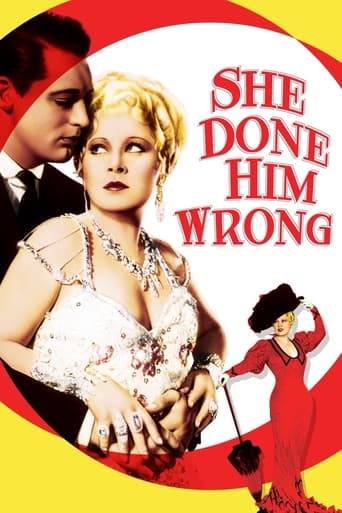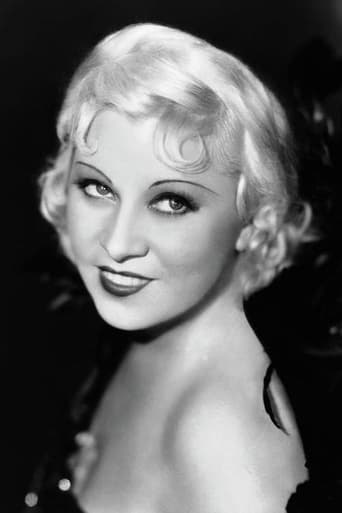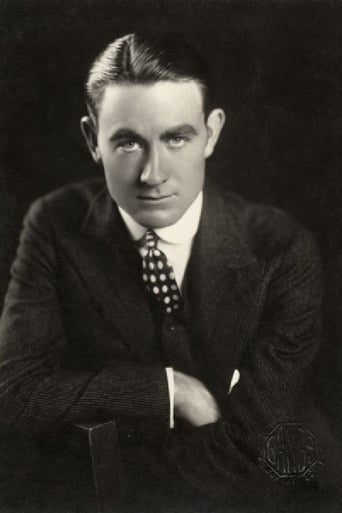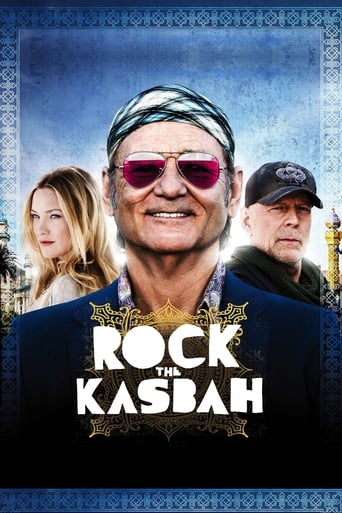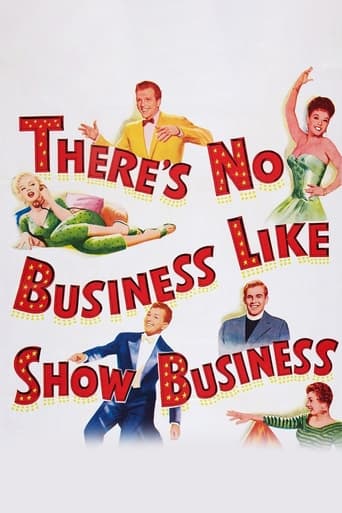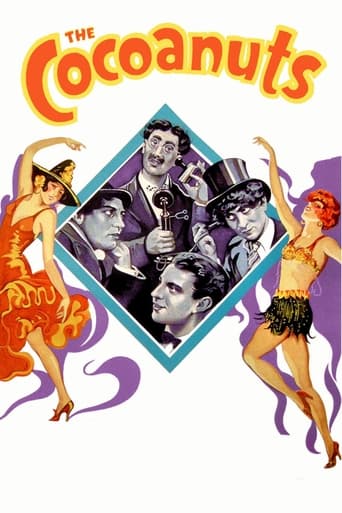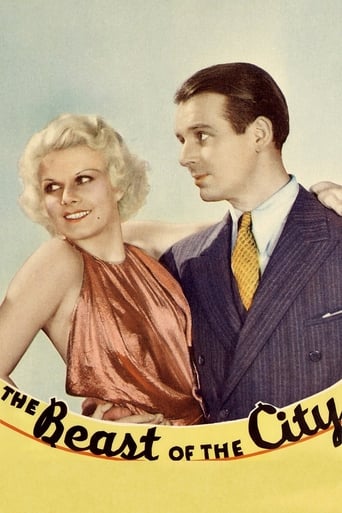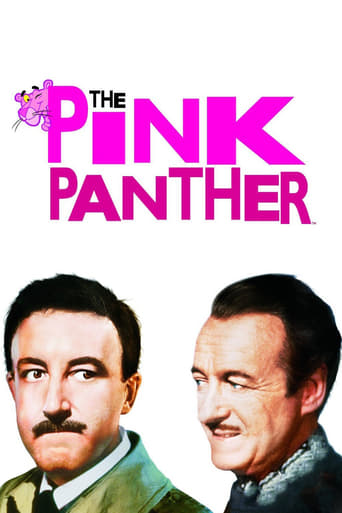She Done Him Wrong (1933)
New York singer and nightclub owner Lady Lou has more men friends than you can imagine. One of them is a vicious criminal who’s escaped and is on the way to see “his” girl, not realising she hasn’t exactly been faithful in his absence. Help is at hand in the form of young Captain Cummings, a local temperance league leader.
Watch Trailer
Cast


Similar titles
Reviews
A lot of perfectly good film show their cards early, establish a unique premise and let the audience explore a topic at a leisurely pace, without much in terms of surprise. this film is not one of those films.
After playing with our expectations, this turns out to be a very different sort of film.
It’s not bad or unwatchable but despite the amplitude of the spectacle, the end result is underwhelming.
It is a whirlwind of delight --- attractive actors, stunning couture, spectacular sets and outrageous parties.
"She Done Him Wrong" is an early hit film for both Mae West and Cary Grant. West is Lady Lou and Grant is Captain Cummings. Other key players include Owen Moore as Chick Clark, Gilbert Roland as Serge Stanieff, Noah Beery as Gus Jordan, David Landau as Dan Flynn, and Rafaeta Ottiano as Russian Rita. The cast are all good and the story is interesting, if a little slow. Others describe the plot, and I thought some movie buffs would be interested in some of the background of the movie and the stars. This film is credited as the movie that made Mae West a star. It was only her second film, but first lead role. She already had made her mark on Broadway where she acted in plays that she wrote for herself. In an introduction on the DVD of this movie, host Robert Osborne says that this film saved Paramount studios from bankruptcy. Paramount was due to go under, but the box office from "She Done Him Wrong" put the company back in the black. And, with Mae West as the studio's new star, Paramount continued on its track back as one of the big filmmakers. The movie also helped push Cary Grant's career. Grant had risen to male leads in three films the year before. A check of histories elsewhere affirms that Mae West's two films in 1933 (the other being "I'm No Angel") were a boost to Paramount, but none attributed the recovery directly to that. The company remained in trouble for a time. Studio head Adolph Zukor is credited with pulling the company out of receivership. He had also acquired a number of other top stars along with West and Grant. Those included Claudette Colbert, Bing Crosby, Marlene Dietrich, Carole Lombard, Jeanette MacDonald, and the Marx Brothers. They all made some hit movies that helped restore Paramount's star. Osborne related some interesting background on this movie. Mae West had written and starred in the hit 1928 Broadway play on which it is based, "Diamond Lil." But, when Paramount bought the movie rights, apparently the Production Code office notified the studio that there was no way it could make "Diamond Lil" into a movie. The play was far too racy for the motion picture industry's new standards. So, Mae West, the other writers and the director went to work to revise the film. The first thing they did was change the name. The new screenplay replaced racy dialog and scenes with innuendo and double entendre. Osborne said that Mae West later was quoted as saying that the Production Code led to better movies because the studios wrote better stories with innuendo and suggestion that made them much funnier than they were otherwise. It's interesting too that West made only 13 films in her movie career. Three of those were more than two decades after she left Hollywood in 1943 to return to the stage and nightclub entertaining. She was 87 and living in Hollywood when she died in 1980. Of course, all those other names above from Paramount went on to become huge stars as well. This is a good film, but nothing special. West made only two films considered very good –"'I'm No Angel" and "My Little Chicaddee." She was more of a sex symbol with a come-on persona, than she was an actress. She had some good years on stage, acting and writing, and she worked the nightclub circuit for most of her career. Here, West sings "Frankie and Johnny," which may be the first time that long-time popular American song was used in the movies.
In 1890s New York, saloon singer Lady Lou (Mae West) is attracted to a reformer (Cary Grant) while dealing with many suitors and a psychotic escaped convict (a memorably creepy Owen Moore). This is often called Mae West's best movie. It's a vanity project full of people complimenting her. If there was even the slightest hint West was poking fun at herself I would like this much more. As it is, it's a watchable but pedestrian comedy. Mae spouts one-liners and oozes what I think is supposed to be sex appeal. If you find her attractive, more power to you. Some of her lines are amusing. Mae sings a few songs but they're terrible. Her voice, or lack thereof, is the pits. Obviously she has a lot of fans so this will hold more appeal for them than it did for me. One of Cary Grant's earliest big roles. Also a very weird performance from Owen Moore. Worth seeing to check off your list if you're a film buff.
Hollywood producers had been thinking for years of bringing Broadway bombshell Mae West on the screen (especially since after 1930, the audience was slowly getting tired of the 'old' stars like Mary Pickford or Pola Negri) - but they knew it would take a LOT of guts to make her a film star: her fame was (besides her prominent curves) mainly built upon the HOT subjects of the plays she usually wrote herself, full to the brim with suggestive dialogs and witty double-entendres.So was, of course, her biggest Broadway hit, running since 1928: "Diamond Lil". And since 1931, this play revolving around a prostitute and a Salvation Army officer (who is really an undercover detective) was on Will Hays' black list of 'restricted' plays - which meant plays that were by no means to be turned into a movie...And yet, right after the Paramount bosses had finally made the decision to invite her to start a film career in "Night after Night" alongside her old friend George Raft, they DID decide to make "Diamond Lil" a movie! Without even bothering too much with making changes to the plot, only making Mae a singer instead of a prostitute, and toning down a little the VERY obvious sexuality of the play, they shot it as "She Done Him Wrong" - with the famous tale, of course, that Mae, still looking for a co-star, stumbled upon young and still unknown Cary Grant at the parking lot and told her producer decidedly: "If he can talk, I'll take him!"...And so, we find ourselves in the 'Gay Nineties' (Mae's favorite era), in a rather shady saloon (when her boyfriend whom she visits in jail asks her what she's doing, she answers: "Singin' at Gus Jordan's!" - and adds immediately: "It ain't what you think!"...), where Mae (now called 'Lou' instead of 'Lil'), clad in shiny, sparkling tight-fitting dresses, croons her risqué songs, and is the star of the show, and of course always surrounded by a whole bunch of men... And as young Serge (Gilbert Roland), who seems to be just her cup of tea, seems a little shy, she delivers her famous line: "Why don't you come up sometime, see me?" And to the utterly decent 'Salvation Army officer' Cary Crant, she unmistakeably declares when he hesitates to come too close to her: "You can be had!" And although, in the further course of the movie, things finally take a more or less 'right' turn, with all the bad guys of the saloon gang ending up in jail, and Lou in a carriage with her detective (who in fact DOES have something of a Salvation Army officer in him: he makes Lou understand that she HAS got a soul, in contrast to all those diamonds!) with a modest engagement ring instead of all her huge diamond rings on the third finger of her left hand - this must have been something like a 'last straw' for Will Hays, who'd been trying to make Hollywood films more decent in order not to 'corrupt' the average American cinema-goer's character, and especially lately raging with the impudence of movies like "The Maltese Falcon", "Baby Face" and "Of Human Bondage": The Production Code, a kind of Hays' 'Ten Commandments' on film morale, HAD to be enforced.Mae West managed to push through another one of her great sex comedies before the Production Code was finally REALLY enforced: "I'm No Angel" - in my opinion, in some ways (especially concerning the clothing) even more daring than "She Done Him Wrong"; but one thing's for sure: they're both among THE great pre-Code classics today, a part of film history... and, even 80 years later, still JUST as entertaining as ever!!
She Done Him Wrong staring Mae West is one of those old black and white flicks that entertains as well shows off a little "naughtiness". It was said that this is the film that saved Paramont Studios when they were having financial woes. The film is a reproduction of a Broadway play called Diamond Lil. She Done Him Wrong has a fine cast of players ranging from Cary Grant(an unknown at the time but made a star) But the real star is a tough Brooklyn born actress named Mae West.Mae came from a rough and tumble background. A daughter of boxer named "Battlin" Jack West and her mother, a corset maker with Burlesque connections, Mae grew up in a challenging environment. But she loved the Burlesque theater so much that she left school and performed on the stage. She wasn't a raving beauty, a bit overweight and not so much a voice but Boy! she seemed to steal the scenes with a sexy purr, gorgeous clothes and a erotic glow with her eyes. Mae knew how to use her rubinesque physique to walk off the scenes with captivating sexuality that one of her co-stars remarked "she stole every scene including the camera" * a note to the young Believe it or not, this film was considered risqué at the time and the Hays Decency code in Hollywood watched Mae West like a hawk so she wouldn't violate any decency public laws. Compare it to the films of today, you hardly believe that some people thought this film was indecent. I think that is part of the magic of Mae West. She appeared naked or did hardcore sex scenes in her films but she showed a sexual being in a very original and stylistic character that it is still copied somewhat today.So I would say see this little gem! Come up and see me! and let the fun begin!

